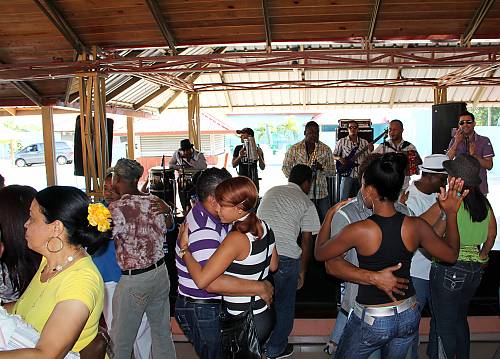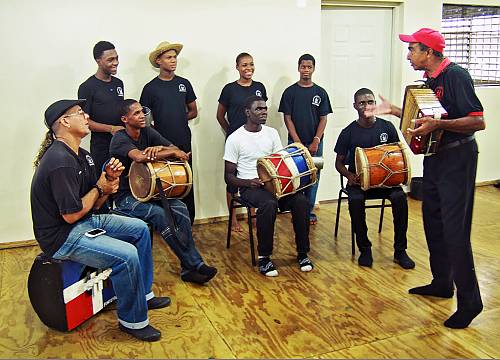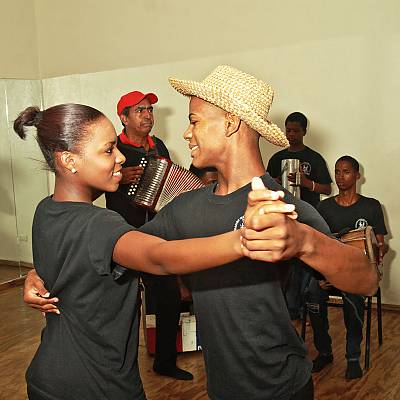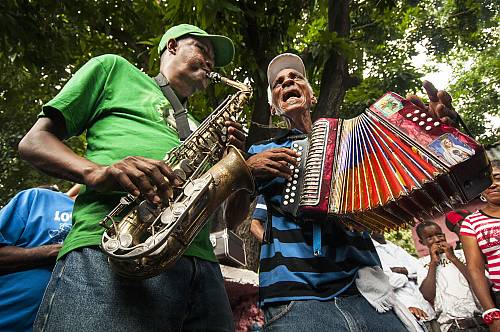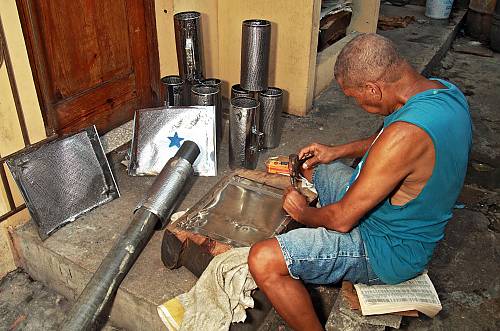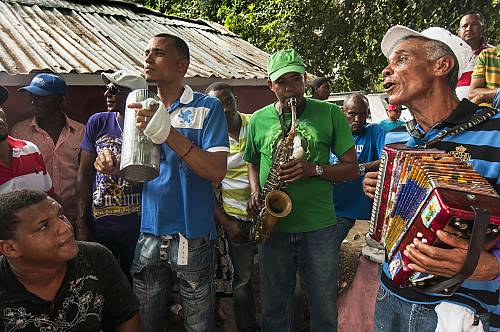Music and dance of the merengue in the Dominican Republic
Inscribed in 2016 (11.COM) on the Representative List of the Intangible Cultural Heritage of Humanity
The merengue is considered part of the national identity of the Dominican community. It plays an active role in various aspects of people’s daily lives – from their education to social gatherings and celebrations, even political campaigning. In 2005, the traditional practice was recognised by presidential decree with November 26 declared National Merengue Day. Merengue festivals are held in cities in the Dominican Republic like Santo Domingo and Puerto Plata every year. Danced in pairs, flirtatious gestures are used as participants move in circles to the rhythm of music played on instruments such as the accordion, drum and saxophone. It is a dance that is usually introduced to learners at an early age. Knowledge and skills on the practice are transmitted through observation, participation and imitation. The merengue attracts people of different social classes, which helps to promote respect and coexistence among individuals, groups and communities. The north of the country is considered to be the cradle of the practice with the area of influence extending to Puerto Rico, the United States of America and the Caribbean region. The merengue is also popular in other Latin American countries such as Venezuela and Colombia where variations have emerged, and countries in Central America.


